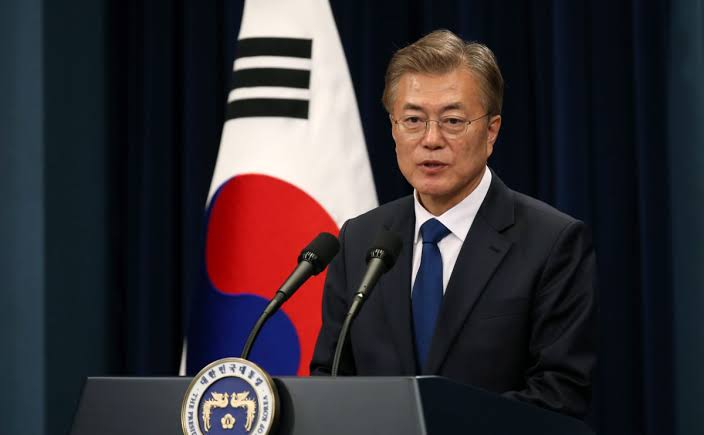Republic of Korea Joins Japan to Target Net Zero Emissions by 2050

Japan and the Republic of Korea have committed to achieve net zero emissions by 2050 as part of the global effort to slow global warming and meet the goals of the Paris Agreement on climate change.
The two countries join “a growing group of major economies committed to lead by example” in achieving a sustainable, carbon-neutral, and climate-resilient world by 2050.
UN Secretary-General António Guterres welcomed Japan’s Prime Minister Suga Yoshihide’s announcement on October 26, 2020 as “a very significant positive development.” Japan is the world’s third largest economy and fifth biggest emitter.
Read also: Death toll in Turkey earthquake rises to 100
The Secretary-General commended the Republic of Korea’s President Moon Jae-in’s announcement one day later as “a very positive step in the right direction.”
The Republic of Korea is the world’s 11th largest economy and sixth largest exporter. In July, the country also announced a $35 billion New Green Deal on ending investment in coal.
The announcements by Japan and the Republic of Korea come two weeks after the fourth Ministerial Meeting of the Coalition of Finance Ministers for Climate Action, where Guterres called on countries to commit to achieving carbon neutrality by 2050.
“We need all of you, through your [nationally determined contributions (NDCs)] and Net Zero plans, to send a clear and unambiguous signal to markets that the decarbonisation of the global economy is inevitable,” he said.
The announcements come a month after China’s President Xi Jinping’s statement to the UN General Assembly (UNGA) that China aims for its carbon emissions to peak before 2030, and to become carbon-neutral by 2060.
The EU pledged to reach carbon neutrality by 2050 under its European Green Deal.
In June, the UK became the first major economy to sign into law its target to bring all greenhouse gas (GHG) emissions to net zero by 2050.
On June 5, the UNFCCC launched its “Race To Zero” global campaign to catalyse action at subnational level. The initiative aims to rally leadership and support from businesses, cities, regions, and investors, among other actors, for a healthy, resilient, zero-carbon recovery from the COVID-19 pandemic that prevents future threats, creates decent jobs, and unlocks inclusive, sustainable growth.
Race To Zero Dialogues are scheduled to take place from November 9 to 19 to provide input to the UNFCCC Climate Change Dialogues from November 23 to December 4, which will bring countries and stakeholders together to accelerate progress towards meeting the goals of the Paris Agreement.
Together, the two sets of dialogues will set the stage for the Anniversary of the Paris Agreement on December 12, and mobilise momentum towards the Glasgow Climate Change Conference in 2021.
